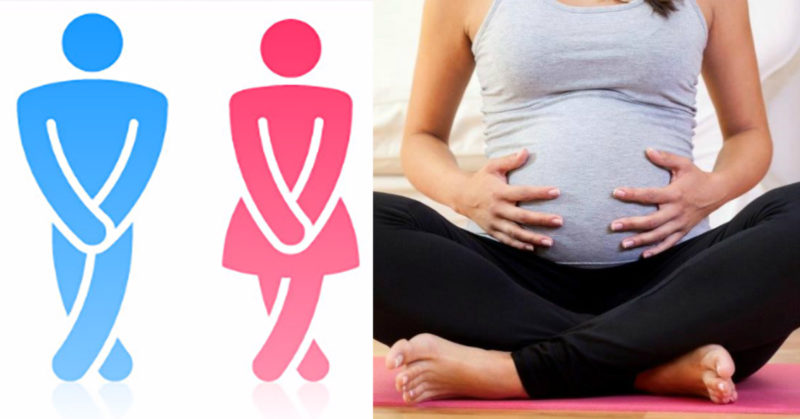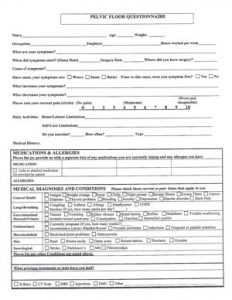Our pelvic floor PT specialists are highly trained and very experienced treating men and women who have problems associated with the pelvic floor muscles. We will give you a very thorough evaluation addressing your whole body, to assess the alignment of your skeleton as well as your neuro-motor ability to move and stabilize yourself with efficiency.
We look at the mobility of joints, flexibility of the myofascial system, the strength, coordination and awareness of your core and pelvic floor area. We will evaluate your pelvic floor muscles both externally as well as internally to assist in creating your specific program. We use myofascial release techniques to address soft tissue dysfunction and then we teach you how to move and strengthen with functional movement patterns.
Incontinence
INCONTINENCE can occur in men and women. Common causes are weakness, spasm, childbirth, surgery, radiation treatments, benign prostate hyperplasia (BPH) to name a few. There are several kinds of incontinence problems that can be corrected with PT:
Stress: leakage of urine when you lift, giggle or exercise. 1 in 3 women report this problem!
Urge: “Just-in-case” bathroom use leads to urgency – feeling the need to go often.
Frequency: emptying the bladder too often and training yourself into bad habits.
Mixed: having both stress and urge problems- a very common issue for many!
A systematic review of current research shows that most people perform “Kegel Exercises” incorrectly at home and SUPERVISED pelvic floor muscle programs initially taught by a specialized PT are more effective in successfully treating incontinence. In addition, doing “Kegel Exercises” or “lifting up the pelvic floor” is only one part of the equation….coordinated movement throughout the hip, pelvis, low back and core are also key elements to neuro-motor retraining. Additionally, “Kegel Exercises” are not appropriate for all patients! These are often contraindicated with pelvic pain patients especially in the early phases of treatment.
Pelvic Pain
PELVIC PAIN can occur in men and women. There are usually many factors involved in Pelvic Pain such as:
Trauma, Surgery, Radiation, Childbirth, Episiotomy, Vulvadynia, Interstitial Cystitis, Irritable Bowel Syndrome, Fibromyalgia, Vestibulitis, Coccydynia, Painful Intercourse— to name a few.
Our highly skilled manual therapy involves using myofascial release, muscle energy, joint mobilization and trigger point work (among others) to facilitate improved movement of joints and muscles. Entrapped nerves can be freed and pain can be greatly reduced. We will instruct you in a personalized home program so that you will learn how to treat yourself for pain management while you move in new ways to reduce spasm, gaining strength and coordination.
Chronic Constipation
CHRONIC CONSTIPATION occurs in men and women. Straining to move the bowel is very stressful on the pelvic floor muscles and organs and can cause muscle tension and organ prolapse. We use manual therapy, awareness training and proper toilet posture which are all proven to be very effective in eliminating constipation (pun intended!)
ED (Erectile Dysfunction)
ERECTILE DYSFUNCTION can result from Pudendal neuralgia. Pelvic floor soft tissue compression can be caused by bike riding which may put undo stress on important nerves, muscles and impact blood flow to the pelvic floor, causing spasm, pain and limited erectile ability. Physical Therapy using myofascial release, trigger point therapy and joint mobilization can target the imbalanced areas thereby decreasing over- active muscles, reducing pain, and improving the circulation of nerves and blood flow.
Pre- and Post-Natal Care
PRE AND POST NATAL CARE conditions commonly treated include low back pain, sacroiliac dysfunctions, pelvic floor pain, core weakness and incontinence. Additional areas addressed include post-cesarian section weakness, episiotomy pain, body mechanics!
Interventions
PHYSICAL THERAPY PELVIC FLOOR INTERVENTIONS may include:
• Bladder Diary and Bladder Retraining
• Relaxation Techniques/Quieting of the Pelvic Floor for muscles in Spasm
• Behavior and Dietary Modification
• Biofeedback
• Activation, Strengthening, and Stabilization of the Pelvic Floor and Interconnected Supporting Structures
• Postural Retraining and a Comprehensive Home Exercise Program
Rehabilitation of the Pelvic Floor Complex can be life changing and most patients have a good prognosis. A comprehensive physical therapy program should be considered before complicated surgeries to treat pelvic pain or incontinence issues. In the event, surgery is indicated, it is highly recommended to have post-op physical therapy to restore full coordinated muscle and joint function which is often working inefficiently and out of balance before and after surgery. Call for your appointment today 610-695-9913!






